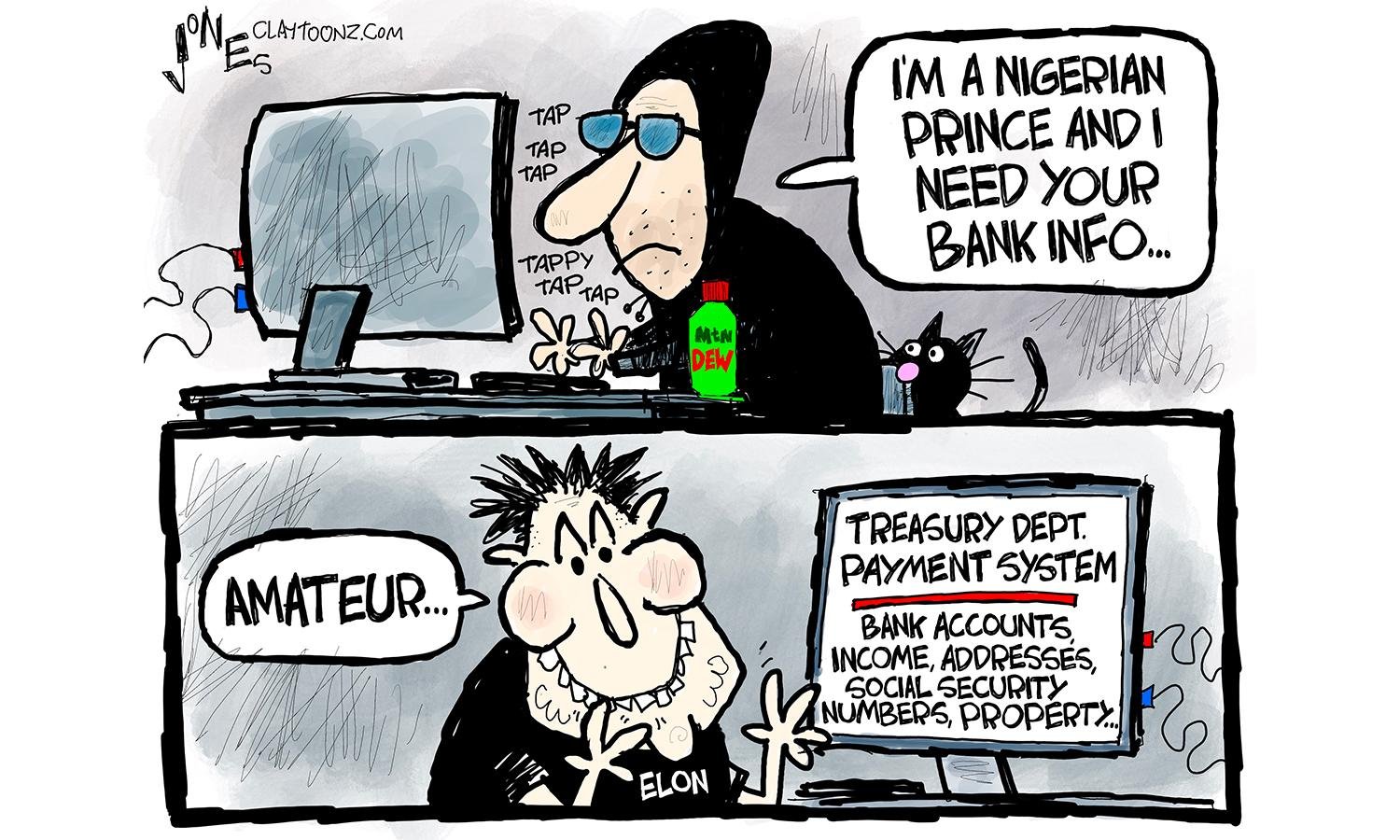Business
Claytoonz Unveils the Phishing Plot Featuring Elon

Political cartoons serve various roles, from providing humor to sparking outrage. A recent instance highlights one particularly pressing issue: Elon Musk’s newfound access to the Treasury Department’s payment system. This access raises significant concerns about privacy and security for American citizens.
The implications are vast. Musk can now view sensitive financial information for everyone receiving federal payments, which includes competitors seeking government contracts and individuals expecting tax refunds. This access encompasses Social Security numbers, banking details, and personal information such as birth dates and addresses.
David Lebryk, a senior official at the Treasury Department, has reportedly been placed on leave and subsequently retired following tensions surrounding this access. Treasury Secretary Scott Bessent allegedly authorized this decision, which many view as alarming.
Musk claims that his intention is to identify and prevent unnecessary or corrupt government spending. Yet, critics argue that he lacks the authority to approve or cancel such spending, similar to previous presidents. His recent critiques of the Treasury Department’s practices further underscore the questionable nature of his access.
Controversy isn’t limited to Musk alone. The Department of Government Efficiency (DOGE), a newly formed entity under the Trump administration, has also sought access to federal data platforms. This team is known for controversial demands and seems to challenge traditional bureaucratic limits.
Among those affiliated with DOGE is Tom Krause, CEO of Cloud Software Group, who has significant wealth tied to government contracts. His request for information was initially denied by Lebryk before the sudden retirement, raising questions about oversight and motives.
Critics assert that Musk’s involvement with federal data represents a glaring conflict of interest, potentially violating the Emoluments Clause. With DOGE operating close to the White House and comprised of around twenty employees, the transparency of its operations remains unclear.
Interestingly, Musk has previously suggested that significant cuts to government spending are necessary, even though historical data shows that Republican administrations typically increase national debt. Concerns rise over the genuine motivations behind his push for financial oversight.
Senator Ron Wyden has publicly voiced skepticism, questioning why individuals with demonstrated disregard for the law would need access to critical financial systems. The potential for misuse appears ever-present, especially in an age where financial scams are increasingly sophisticated.
Ultimately, if the public isn’t alarmed by these developments, it is imperative to reassess their understanding of privacy rights and government accountability. As events unfold, the ramifications of expanded access and reduced oversight will likely resonate throughout American society.










![Phillip Gracia was arrested on multiple disorderly conduct charges on June 19, 2025. [PCSO/graphic]](https://arizonanews.org/wp-content/uploads/2025/06/Family-Mass-Suicide-Plot-Man-Arrested-for-Alleged-Orchestration-400x240.jpg)
![Phillip Gracia was arrested on multiple disorderly conduct charges on June 19, 2025. [PCSO/graphic]](https://arizonanews.org/wp-content/uploads/2025/06/Family-Mass-Suicide-Plot-Man-Arrested-for-Alleged-Orchestration-80x80.jpg)






